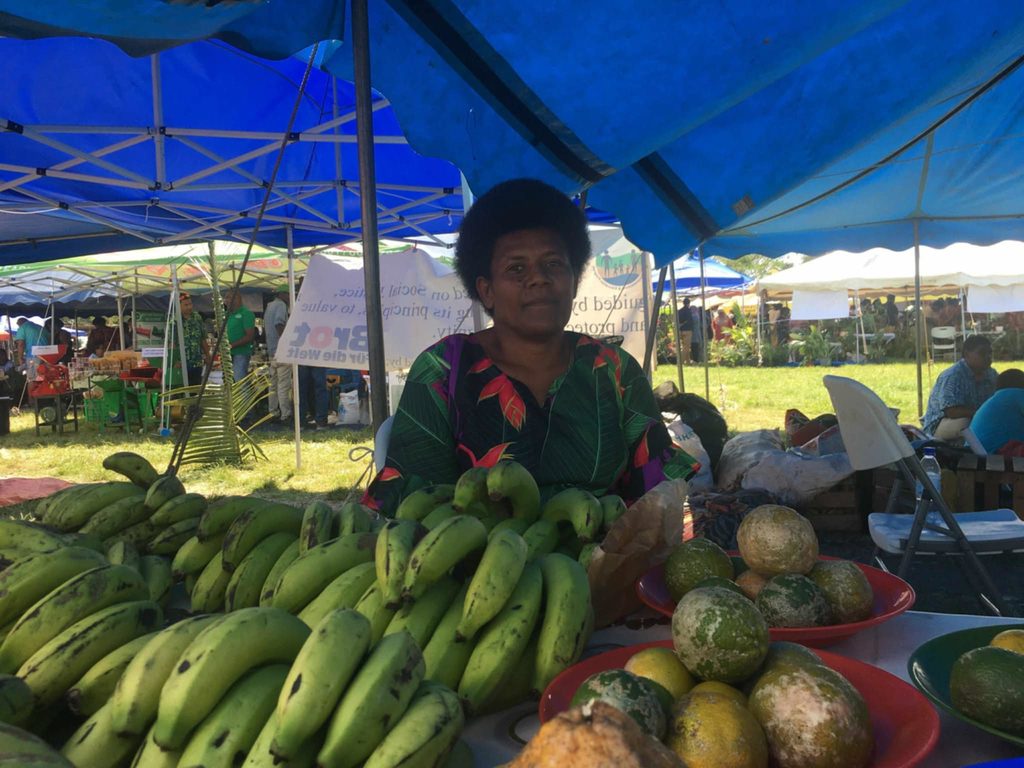High up in the hills of Dreketi, Nagonenicolo, Naitasiri, the mornings begin long before the sun rises. The ground is wet with dew, the paths are muddy, and the farm waits.
For Maretina Venina, this is life, a life of hard work, sacrifice, and love for her family.
Originally from Qeleni, Taveuni, Mrs Veinina moved to Naitasiri after marriage.
Today, she is a mother of five — four boys and one girl and is known in her community as a farmer whose hands never rest.
Her farm carries vegetables, cabbage, tomatoes, cassava, dalo, bananas, and yaqona.
Each crop is a lifeline for her family.
“When you’re a mother, you don’t have the choice to give up,” the 45 year old said.
“I struggle a lot when there is no financial sourcing, but I am determined to farm. Even if the money is small, at least I know I am doing something for my children.”
Struggles
The road from Dreketi to Suva, however, is as much a challenge as the farm itself.
In good weather, it is rough. In bad weather, it is nearly impossible.
“When the road is bad, we have no choice, but to use a punt,” she explains.
“It costs $150 just for one trip. Then from there, the carrier charges another $250 to reach the Suva market. That is $400 gone before I even sell anything. It’s not just me, it’s all of us farmers here. It drains us.”
Still, she does not complain.
She simply keeps going, working side by side with her husband, carrying loads from the farm even in the rain.
“Sometimes I ask myself why I keep doing this,” she says with a laugh.
“But then I look at my children. They give me strength. I want them to see that even if life is hard, you can still stand and fight.”
Pays off
This year, her perseverance brought her a moment of recognition.
She was selected as one of six cluster members supported by the Social Empowerment and Education Program (SEEP) to attend the Ministry of Agriculture and Waterways Agriculture Show.
SEEP, a social justice NGO based at Nasese, Suva covered costs of travel and accommodation which are usually out of reach.
“I am so thankful to SEEP,” she said.
“They made it possible for me to come to this show. I have learned so much, and I will take it back to my village. Without their support, I would not be here. This is not just for me, but for all the farmers in my community.”
As she walks through the bustling agriculture showgrounds, Mrs Veinina’s eyes light up with curiosity and determination.
She speaks with other farmers, listens to new ideas, and imagines how these lessons might grow back in Dreketi.
But her thoughts never wander far from home.
“When this is over, I will go back to my farm,” she said.
“The soil is waiting for me. My children are waiting for me. Farming is not easy, but it is who I am. I will keep farming for them, no matter how hard it gets.”
SEEP
For SEEP’s Agriculture Officer, Filimoni Vodonaivalu, helping women like Mrs Veinina is at the core of their work.
“Our mission is to ensure platforms like this are available for community collaborators,” Mr Vodonaivalu said.
“We are working toward a long-term plan for an Organic Fiji, where farmers can thrive sustainably, protect their environment, and pass on healthier farming systems to future generations.”
For Mrs Veinina, the recognition is humbling, but it does not change her reality.
When the show ends, she will return to Dreketi, back to the soil and back to the same struggles.
Yet her heart is steady. “Farming is my life,” she said. “It is not easy, but it is who I am. I will keep farming for my children, no matter how hard it gets.”
- Jone Salusalu is the Communications and Media Officer at the Social Empowerment and Education Program (SEEP).



